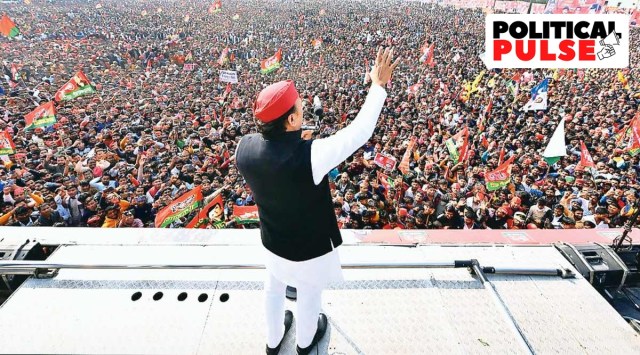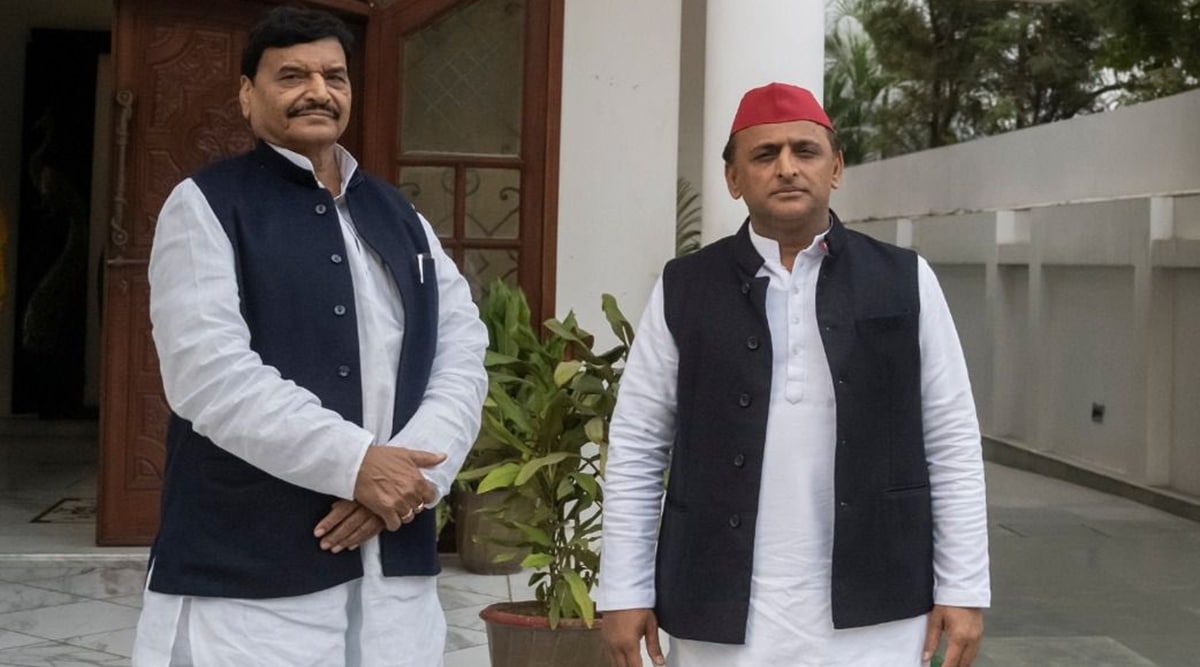Asad Rehman is with the national bureau of The Indian Express and covers politics and policy focusing on religious minorities in India. A journalist for over eight years, Rehman moved to this role after covering Uttar Pradesh for five years for The Indian Express. During his time in Uttar Pradesh, he covered politics, crime, health, and human rights among other issues. He did extensive ground reports and covered the protests against the new citizenship law during which many were killed in the state. During the Covid pandemic, he did extensive ground reporting on the migration of workers from the metropolitan cities to villages in Uttar Pradesh. He has also covered some landmark litigations, including the Babri Masjid-Ram temple case and the ongoing Gyanvapi-Kashi Vishwanath temple dispute. Prior to that, he worked on The Indian Express national desk for three years where he was a copy editor. Rehman studied at La Martiniere, Lucknow and then went on to do a bachelor's degree in History from Ramjas College, Delhi University. He also has a Masters degree from the AJK Mass Communication Research Centre, Jamia Millia Islamia. ... Read More
From RLD to Mahan Dal, SP’s new allies: the smaller parties
A senior party leader said allying with smaller parties gives the SP more bargaining power, besides being able to reach out to castes and communities outside the party's core Yadav vote base.
 SP president Akhilesh Yadav in Mainpuri during a 'Vijay Yatra'. (Express photo)
SP president Akhilesh Yadav in Mainpuri during a 'Vijay Yatra'. (Express photo)After allying with the Congress in the 2017 Assembly election and the BSP in the 2019 Lok Sabha polls, and ending up with defeats in both, the Samajwadi Party has made it clear that the party will ally with smaller parties for the upcoming UP elections.
So far, the party has formed alliances with several smaller parties, all of which, with the exception of the Jayant Chaudhary-led Rashtriya Lok Dal (RLD), have a base among OBCs in the state; the RLD has its presence among Jats in western UP.
In the last few elections, the BJP has managed to garner the support of non-Yadav OBC communities, and Akhilesh’s alliances with the smaller parties have been made with an eye on these votes.
SP spokesperson Juhie Singh said the idea behind forming alliances with smaller parties was to get together like-minded people who want to rid the state of the BJP regime. “Our organisation is very huge in UP, and it is better for us to ally with smaller parties so that more of our candidates can contest elections. Also, it’s beneficial to share seats with smaller parties instead of bigger parties, which tend to take away a huge chunk of our seats,” said Singh.
बढ़ते कदम! pic.twitter.com/NqYFSz4MV1
— Jayant Singh (@jayantrld) November 23, 2021
She said the SP has always tried to bring together smaller parties. “Even under Netaji (Mulayam Singh Yadav), we would have partners or leaders joining forces with us, or merging their parties with the SP,” she added.
A senior party leader said allying with smaller parties gives the SP more bargaining power, besides being able to reach out to castes and communities outside the party’s core Yadav vote base. “Allying with OBC parties like the SBSP (Suheldev Bharatiya Samaj Party, a former BJP ally) helps us in some regions. Also, this way, there is never any doubt about who the bigger leader is,” he said.
A source in SP said all the allies have been told about their role in the alliance, and the number of their seats their candidates can contest. “They are all on board. Obviously, in an alliance, there will be some bargaining over seats which is happening, but the SP is clear about how many seats each ally will contest,” said the source.
A look at the parties the SP has tied up with so far:
Suheldev Bharatiya Samaj Party (SBSP)
In the 2017 polls, SBSP, a former BJP ally, contested eight seats in UP, and won four. The party, which has its base in eastern UP districts, holds influence among backward communities such as Rajbhars, Chauhans, Pals, Vishwakarmas, Prajapatis, Baris, Banjaras, Kashyaps and other backward communities.
Arun Rajbhar, SBSP general secretary, says the party has the capability to transfer its votes to the SP. “We transferred our votes in 2017 and the BJP won. We will do the same this time. The communities we represent are scattered across more than 150 seats,” said Rajbhar, son of party chief Om Prakash Rajbhar.
A source in the party said the SBSP has sent a list of 35 candidates to the SP leadership. “We hope for at least 25 tickets from the SP,” said the source.
Rashtriya Lok Dal (RLD)
The RLD is hoping for a turnaround in fortunes under the leadership of Ajit Singh’s son Jayant Chaudhary. The party hopes to cash in on the anti-BJP sentiment among farmers in western UP, and Jayant and Akhilesh have so far held several rounds of discussions on seat sharing. The party hopes to bring together Jats and Muslims, the two constituencies that together formed its core vote bank but who went separate ways after the 2013 Muzaffarnagar riots. In the elections that followed, in 2017, the RLD won just one seat out of the 277 it contested. The RLD is demanding 40 seats, but sources in the SP say it will get somewhere between 25-30 seats.
Mahan Dal
Led by Keshav Dev Maurya from Jaunpur, the Mahan Dal was formed in 2008 and has a presence among Most Backward Castes such as Shakyas, Sainis, Mauryas and Kushwahas in the western UP districts of Kasganj, Agra and Firozabad, and in around 150 seats in eastern UP.
The party had allied with the Congress in the 2009 and 2014 Lok Sabha polls, but could not win a single seat. In the 2012 state polls, the party contested 71 seats, but lost all of them. Yet, the party managed to get around 40,000 votes on 40 seats, a sizeable chunk for a small party. In the 2017 UP polls, its candidates – they contested from 14 seats – lost their deposits everywhere.
Party leaders say the “humiliating defeat” in 2017 was because Keshav Prasad Maurya was then projected as CM face. He eventually went on to become Deputy CM in the Yogi Adityanath government.
Party sources say the party has asked Akhilesh for less than 10 seats, and its candidates will contest all seats on the SP symbol. “We have discussed seat sharing with Akhilesh ji, and we are sure that we will get a respectable number of seats,” said Keshav Dev Maurya.
Janwadi Party (socialist)
Led by Sanjay Singh Chauhan, the party has a base among the Nonia community. For the 2012 election, Chauhan’s party had joined hands with the BJP, and contested five seats in eastern UP, but drew a blank. The party didn’t contest the 2017 polls.
In the 2019 Lok Sabha election, he was the SP candidate from Chandauli, but lost by a narrow margin of 13,959 votes.
Chauhan says the party has sent a list of 19 probable candidates to Akhilesh. “It is up to Akhilesh ji to decide how many seats we get, but we are hopeful that he won’t let us down,” said Chauhan.
Pragatisheel Samajwadi Party (Lohia)
The PSP has been the latest addition to the umbrella of parties taken on board by Akhilesh Yadav. Led by estranged uncle Shivpal, the party says it is part of the Samajwadi family. The party has several former SP leaders, who joined Shivpal following his feud with nephew Akhilesh in 2016.
 SP president Akhilesh Yadav with his uncle Shivpal Singh Yadav. (Twitter/yadavakhilesh)
SP president Akhilesh Yadav with his uncle Shivpal Singh Yadav. (Twitter/yadavakhilesh)
“We are from the same family as Akhileshji. We hope that some of the former MLAs and ministers who joined us will get to contest elections. We are hopeful of about 30 seats,” said a source in the PSP.
Shivpal had won the 2017 UP Assembly polls on an SP symbol from Jaswantnagar in Etawah district but later floated the PSP(L).
The party fielded 30 candidates in the 2019 Lok Sabha elections, with Shivpal himself contesting from Firozabad. He got 91,869 votes, while the margin between the winner, BJP nominee Chandra Sen Jadon, and the runner-up, SP candidate Akshay Yadav, was only 28,781 votes.
Apna Dal-Kamerawadi
In November, the Apna Dal-Kamerawadi headed by Krishna Patel announced her support for the SP. Krishna Patel is the mother of BJP ally and Union Minister Anupriya Patel.
The mother and daughter head two factions of the Apna Dal, with Anupriya being the president of the Apna Dal (Sonelal), named after her father Sone Lal Patel, a former BSP leader. While both factions claim his legacy, both have an influence on the Kurmi (OBC) community in eastern UP districts of Varanasi and Prayagraj. The party says that it has not discussed seat-sharing with Akhilesh so far.



- 01
- 02
- 03
- 04
- 05




























